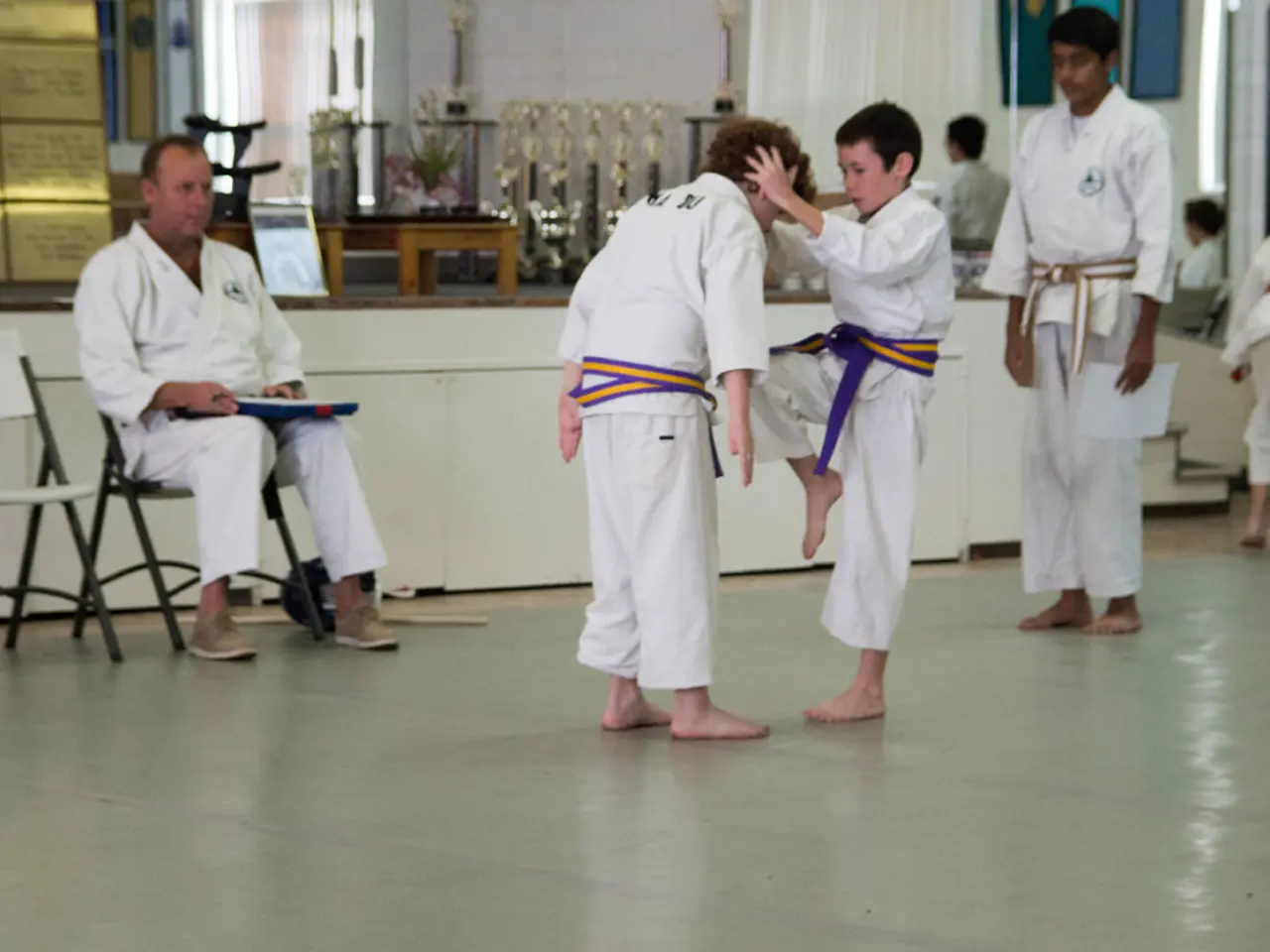Essential Skill for the Future: The Indispensable Soft Skill Every Career Should Possess (in the Future)
In today's rapidly evolving world, the importance of effective communication skills has become increasingly crucial. A recent LinkedIn Workplace Trends survey ranked multi-channel communication, including AI chatbots, as the second-most-desired competency for 2025. This shift in focus reflects the need for individuals to adapt quickly to various communication formats, a skill as important as mastering mathematical concepts.
Educators are responding to this demand by integrating innovative strategies into their teaching methods. One such approach is simulation-based learning, which leverages Virtual Reality (VR) and Augmented Reality (AR) to simulate real-world scenarios. XReady Lab's cultural VR-labs, for instance, drop learners into scenarios where gestures and eye-contact rules differ by region, requiring students to adapt in real time.
Scenario-based training is another effective method, where students are presented with professional settings such as conflict resolution or team collaboration, helping them apply communication skills effectively.
Beyond VR, video and online platforms are also being utilised to enhance learning. Interactive videos simulate virtual meetings and discussions, while online forums and discussion boards encourage written communication and feedback.
Reflective learning and feedback are essential components of these strategies. Personal development journals help students track their progress, while peer feedback sessions and coaching opportunities provide constructive criticism.
Hands-on activities, such as team projects, role-playing, or group presentations, foster collaboration and communication. Real-world applications, like case studies, promote problem-solving and communication skills.
Technology-enhanced networking activities, like virtual networking events, offer students the opportunity to practice communication skills in a professional setting. Pre-planned questions guide conversations and encourage meaningful dialogue.
Spaced practice and reinforcement ensure that communication skills are consistently practiced over time. Repetition and reflection through initial classroom sessions, asynchronous activities, and ongoing feedback reinforce learning.
In the classroom, students are taught communication soft skills through activities such as Impulse vs. Intent, Biology Broadcasts, and Math-Talk Relay. These activities encourage understanding, empathy, and the translation of complex ideas into everyday language.
In an era of remote-first teams and AI co-workers, the gap between training budgets for interpersonal abilities and their importance is downright risky. The National Soft Skills Association cites Harvard-backed research linking 85% of job success to interpersonal abilities. Yet, only about a quarter of training budgets address them.
As the whirlwind pace of career changes means that a sixth-grader's dream job could be extinct by college graduation, it's clear that effective communication skills will be a vital tool for navigating the future. A once-a-week immersive session in VR can turbo-charge empathy and body-language reading, giving students a competitive edge.
By embracing these strategies, educators can create a comprehensive and engaging curriculum that effectively develops communication soft skills in the 21st-century classroom. After all, in a world where communication is set to involve text, voice, and holographic avatars, the ability to adapt and communicate effectively is more important than ever.
Technology plays a significant role in modern education and self-development, with simulation-based learning and scenario-based training using Virtual Reality (VR), Augmented Reality (AR), and video platforms encouraging effective learning and communication. These innovative strategies help students apply their communication skills in various professional settings, preparing them for the future where technology-enhanced networking is essential.




